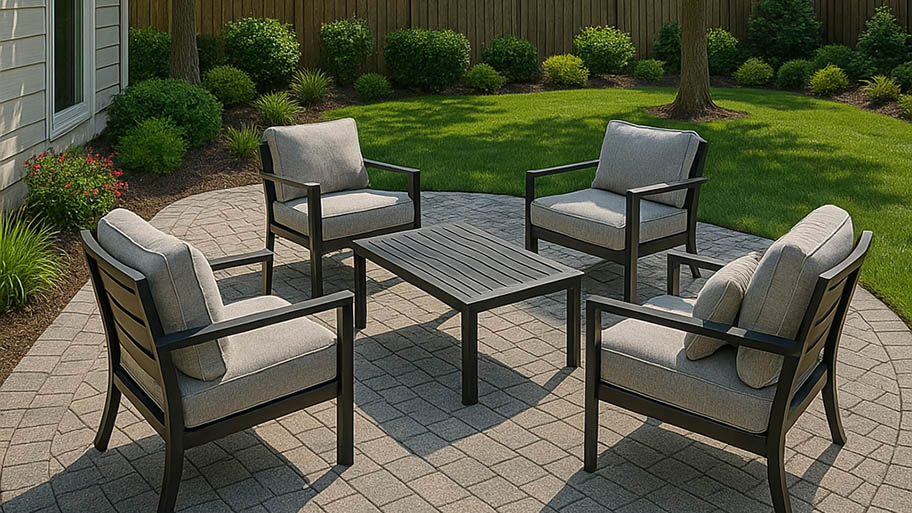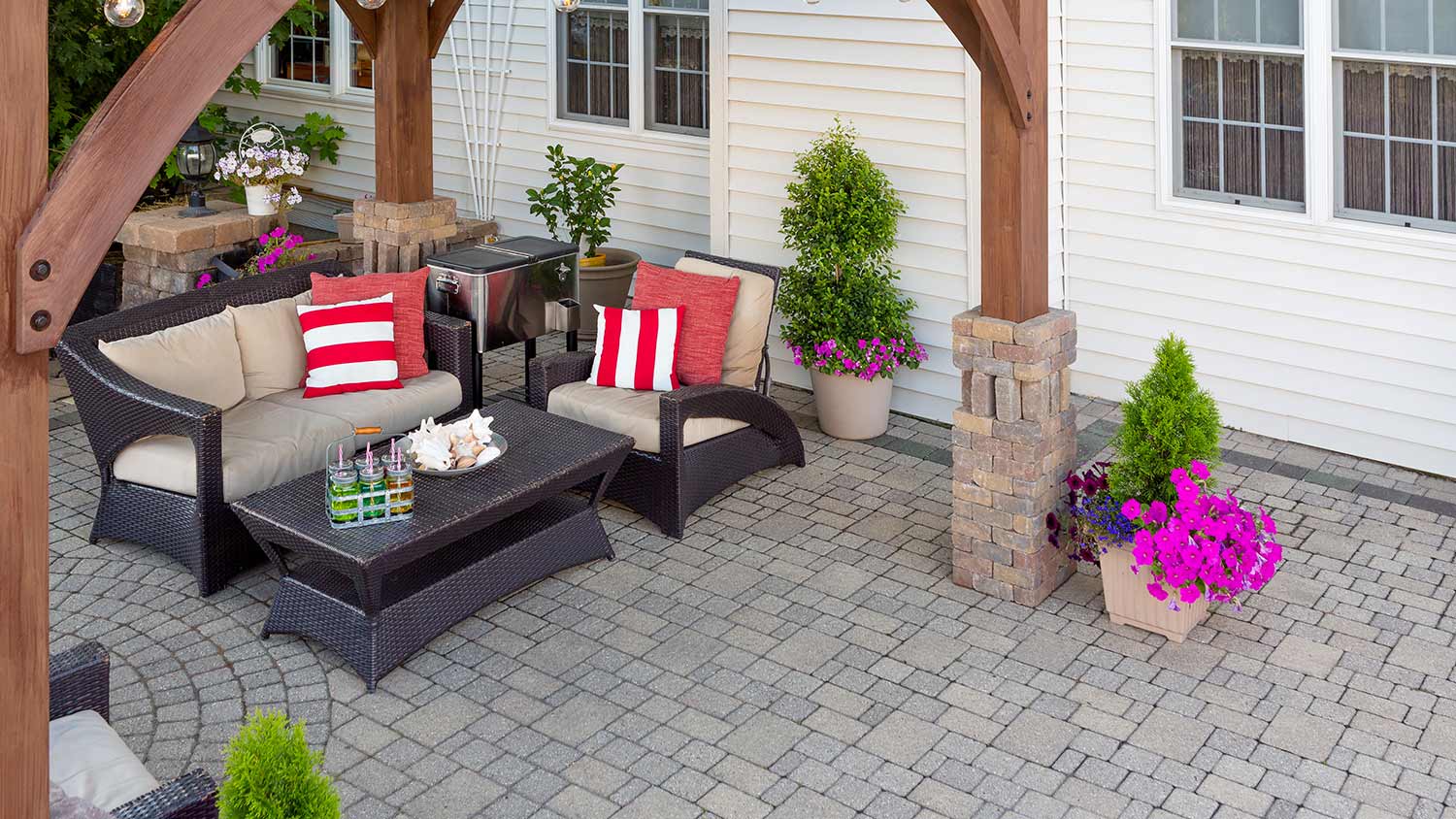
Looking to elevate your backyard aesthetic with a patio? Use this paver patio cost guide to help you estimate your total project cost before you get started.
Lock in your answers to these paving queries


Installing interlocking pavers can completely transform the look of your yard. They’re durable, good-looking, and can be used as steps to level up your landscaping. You’ll need to know the ins and outs of the project before calling a paving contractor near you. Clarifying the type of work you hope to get done will speed up the process and prevent costly surprises. Here are five common questions asked during an introductory call or consultation.
The cost to install interlocking pavers varies project by project, but unless you’re in a tight spot to have your yard perfect by a certain date, it doesn’t make sense to pay a premium to rush it. The paving job shouldn’t take more than a few days, though this, of course, depends on the size of your patio, walkways, and the number of steps. Try to schedule this project when the weather is pleasant—not too hot, not too cold, and with no rain or snow—and your installer will thank you for it.
Interlocking pavers can be installed on any flat ground. However, the most common locations are outdoor patios, walking pathways, and steps that lead to outdoor seating areas. Some people place pavers around fire pits and landscape features such as large trees or gardens.
While most interlocking paver jobs are done for aesthetic reasons, there may be other considerations that make pavers a good choice. For example, you may need a leveled surface for a shed or greenhouse. Or maybe you need a garden walkway for a person with a disability or a wheelchair. Clearly explain the need for the project, which may go beyond aesthetics.
There are many popular types of pavers you can use for this project, but the most common are brick and concrete. If you want to design your patio, walkway, or steps in a unique and elevated way, consider natural stone, porcelain, rubber, flagstone, and bluestone. Remember that not all paving materials are interlocking pavers, so be sure to discuss this with your pro.
Not all homeowners need interlocking pavers, even if they previously thought they did. Interlocking pavers, on the other hand, are tightly aligned, so while they don’t technically interlock, you don’t need to apply mortar between the pavers. Note that interlocking pavers often have weeds sprouting between the pavers and will likely require more upkeep than regular pavers, which use mortar to fill in the gaps.
From average costs to expert advice, get all the answers you need to get your job done.

Looking to elevate your backyard aesthetic with a patio? Use this paver patio cost guide to help you estimate your total project cost before you get started.

Discover travertine pavers costs to learn about installation, materials, and labor prices, plus tips to save on your travertine paver project.

Porcelain pavers are a high-end option for your home’s hardscaping that can completely transform your outdoor space. Here’s how much porcelain pavers cost.

Easily estimate how much concrete you need with our free concrete calculator. Convert dimensions to cubic yards or bags to avoid costly (and messy!) mistakes.

Create a beautiful, long-lasting path by learning how to lay stepping stones using our guide and a bit of sweat equity and muscle power.

Reviewing a contractor’s quote is essential when remodeling. By following these five efficient steps, learn how to tell a contractor their price is too high.